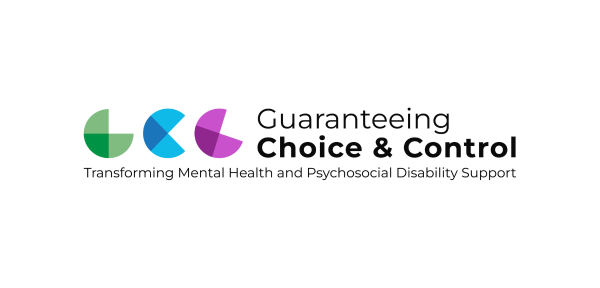Guaranteeing Choice & Control: Transforming Mental Health and Psychosocial Disability Support

Rationale of the conference
Although our understanding of mental health and psychosocial disability has been growing, many individuals continue to receive poor quality care and suffer human rights abuses within a mental health system rooted in a medicalised paradigm. This outdated perspective insists on diagnosing, treating, and curing mental health conditions without sufficiently considering the broader context or acknowledging the societal factors influencing an individual's well-being. Coercive practices, forced admissions, and compelled treatments persist as forms of restraint and seclusion, highlighting the urgent need for a transformative shift.
Our conference addressed these critical issues and promoted a human rights-based approach to mental health and psychosocial disabilities. At the heart of this approach is the recognition and respect for individuals' right to make decisions about their own well-being. To achieve this, we need person-centred, community and recovery-based mental health services rooted in human rights principles.
Organised collaboratively by EASPD,TENENET and Socio Forum with financial support form WHO, this conference was attended by individuals with lived experiences, service providers, policymakers, researchers, and various stakeholders. Together, we critically reviewed existing frameworks; key principles of human-rights, person-centred, community-oriented, and recovery-based mental health services; addressed challenges of practical implementation and service delivery.
By fostering dialogue, collaboration and the exchange of practical ideas, our conference aimed at laying foundations for a more inclusive and effective mental health service delivery system. Together, it is important we promote a mental health system where everyone is treated with dignity, respect and a genuine commitment to their well-being.
Presentations
Workshop 1: Practical ways for providing support to persons with intellectual disabilities and mental health issues.
- Monika Fričová, Platform of Families of Children with Disabilities: PPT
- Chris Van Wesemael, Hubbie: PPT
Workshop 2: Empowering early childhood: fostering the wellbeing of children and their caregivers
- Vicky Krokou, Amimoni: PPT
- Irene Bertana, EASPD: PPT
- Iryna Roshkovych, ECI teams of the region of Zakarpattya and Oksana Kryvonogova, Healthy Society ECI-center: PPT
Workshop 4: Intersectionality between mental health conditions, psychosocial disabilities and precarity
Panel 3, Part 2: Reshaping mental health services in diverse legal frameworks
- Melita Murko, WHO Regional Office for Europe: PPT
Workshop 6: Sexual and gender-based violence
Workshop 7: Lessons learnt from MPHSS in Crisis Contexts: trauma, emergency and displacement
- Murat Can Birand Apaydin, WHO Europe: PPT
About the hosts
The conference was co-hosted by the European Association of Service providers for Persons with Disabilities (EASPD), Tenenet and Socio Forum with financial support from WHO.
The European Association of Service providers for Persons with Disabilities (EASPD) represents the interests of over 20,000 social care and support service providers for persons with disabilities across 41 countries.
Tenenet is a Slovak organisation whose work encompasses providing employment and social services for disabled individuals, implementing legal protection for children, fostering educational programs, collaborating with domestic and foreign partners on projects, and functioning as an association of citizens.
Socio Fórum is an umbrella organisation, bringing together NGOs in the social services sector. Its mission is to motivate, support and strengthen voluntary and professional MNOs that help people at risk of social exclusion or socially excluded people.

